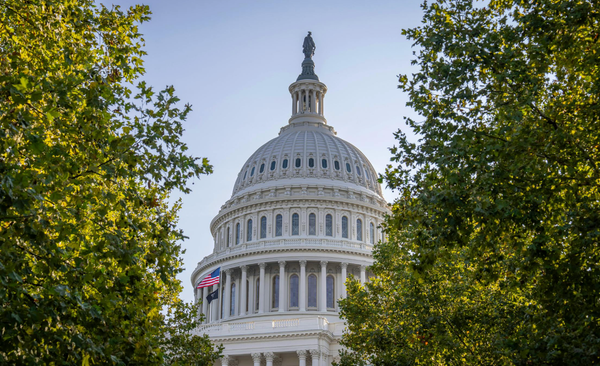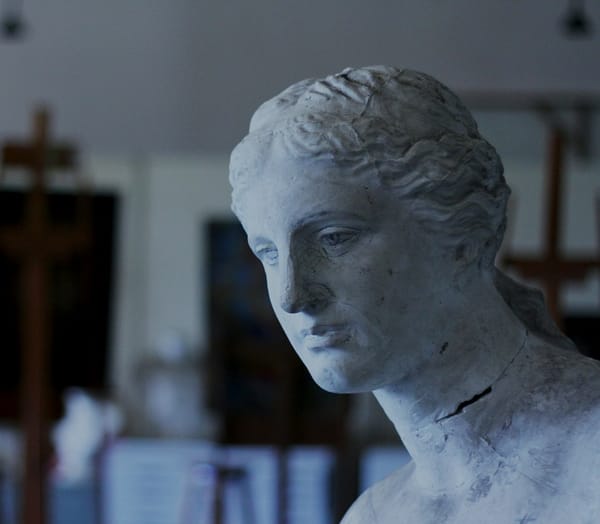Trump is killing the Back to School of Tomorrow

How education is becoming less equal, more censored and sold to tech companies for scraps
Education in the United States has been segregated, unequal and censored long before Donald Trump decided to ever run for office. Any progress to making learning more inclusive, equitable fair has been met with violence and hatred.
The backlash to integrated education been documented extensively by our historians and writers like Carol Anderson and Margot Lee Shetterly. Anderson wrote of white backlash against Brown vs. Board of Education in her lightning-precise book White Rage. In Hidden Figures, Shetterly discussed how the state of Virginia resisted integration, using tactics of providing private school vouchers to white children while shuttering all public education. Ironically, film adaptations of educators like the women of Hidden Figures pave over the struggles of school integration to make for a neat fairy-tale clean story of workplace integration. It's easy to think that a few racist coworkers were the core problem, and that demonstrated intellect was all that was needed to make sure the women "computers" of NASA were valued and credited. Nonetheless, civil rights campaigners in each era have fought to make sure curriculums could move in the direction of progress and that money could be allocated to make education more accessible and open.
It's currently 2025 and seven months into a brutal Trump Administration. Children are returning to school in my neck of the woods, and have been studying for about a month in the South. What are they learning, and what do governments within the United States want them to learn?
I use governments as a plural term for educational policy because of the fundamentally fragmented learning system. States and counties have immense say over educational curriculums, books and teacher guidance that operates pretty much independently from federal guidance. The local discretion over fund usage can allocate money for various student activities as well, from cheerleading to chess clubs. Trump's government can threaten to pull federal funding from schools that do not comply with his wishes (which he has), but business as usual has left policy up to regions and localities. Whenever news of book bans or teacher disciplinary action hits the news cycle, it's because of state or county decisions to remove books or get a teacher fired because they were insufficiently heterosexual, Christian or patriotic.
You can track a lot of the trajectory of a country by the political charge and ideological underpinnings of its educational policy. Why?
Think of it this way. A child entering kindergarten in 2025 will see Trump's educational policy as what sets the ground rules for what they will learn. They will be exposed to a system that encourages them to treat LGBTQ classmates as aberrations and immigrant students as criminal by default. There will be parents scared to pick up their own children out of fear of being detained by ICE at schools. Food scarcity will spike for lower income children as lunch and meal distribution program funding dries up. Supply costs have spiked, with rising costs showing up in essentials like clothing, electronics and stationery goods.
This system of immense pressure may radicalize some children, but I don't subscribe to the platitude of "the kids are all right" and assume they will develop progressive views on politics by default. Children will also receive increasing tranches of propaganda if they live in states like Oklahoma, which censors historical atrocities in its own states like the Tulsa Massacre and Osage murders. Prayer periods in schools is gaining political traction in Texas, allowing evangelical churches even further inroads to shaping curriculums and maintaining Christian cultural and social customs. When all of these factors combine in the medium to long term, children are going to be encouraged to succeed through being right wing ideologues, with no room for nonconformity. Under such circumstances, tomorrow's student may very well be more conservative than prior generations. They're incentivized to be that way.
Younger students are impressionable. I don't consider them inherently good or evil. Rather, they are a group that can learn incredibly quickly from the culture and social norms of parents, teachers and the community. In today's educational environment, we risk leaving them to increasingly restrictive and ultimately limiting factors to obtaining a good education. How quickly and easily public education has been dropped and smacked about like an infamous egg in a nursery rhyme. If American education breaks down at a fundamental level, you cannot put it back together again.



